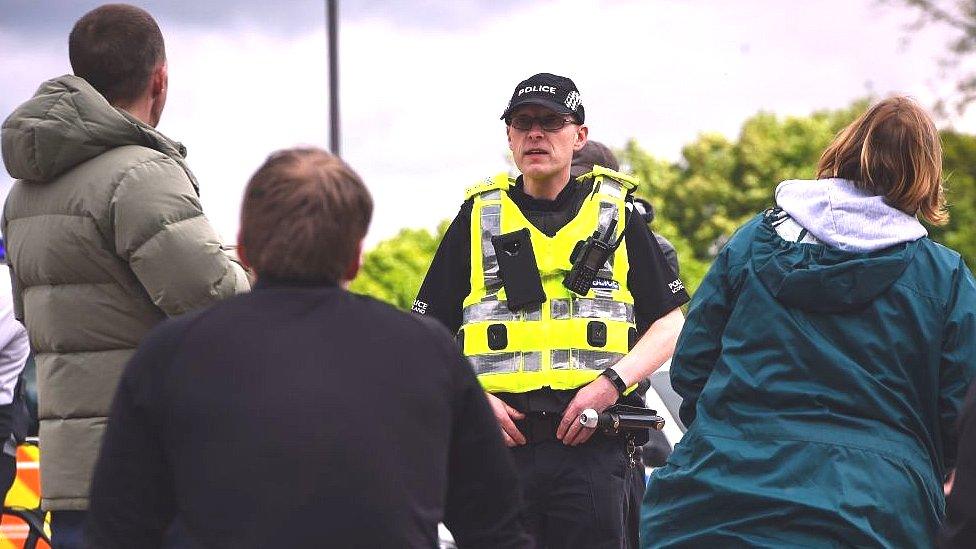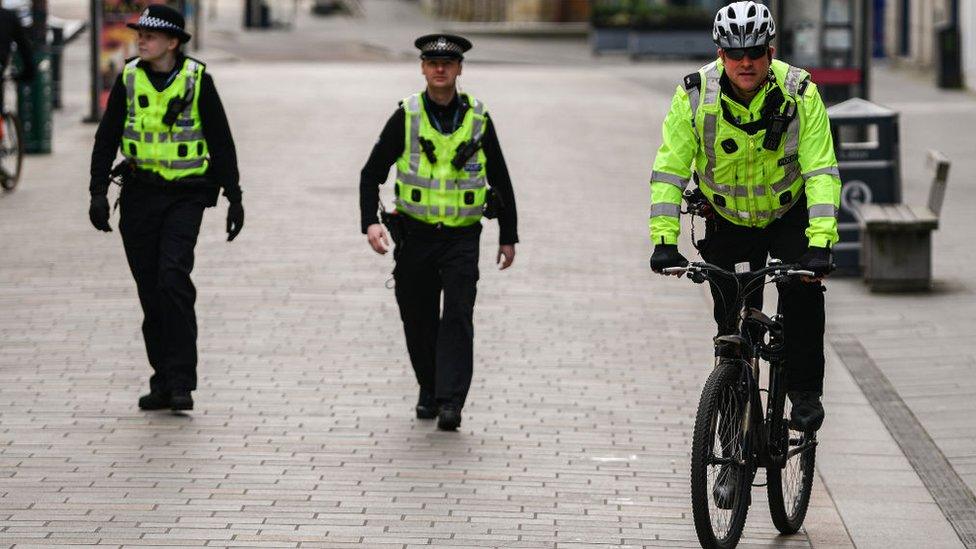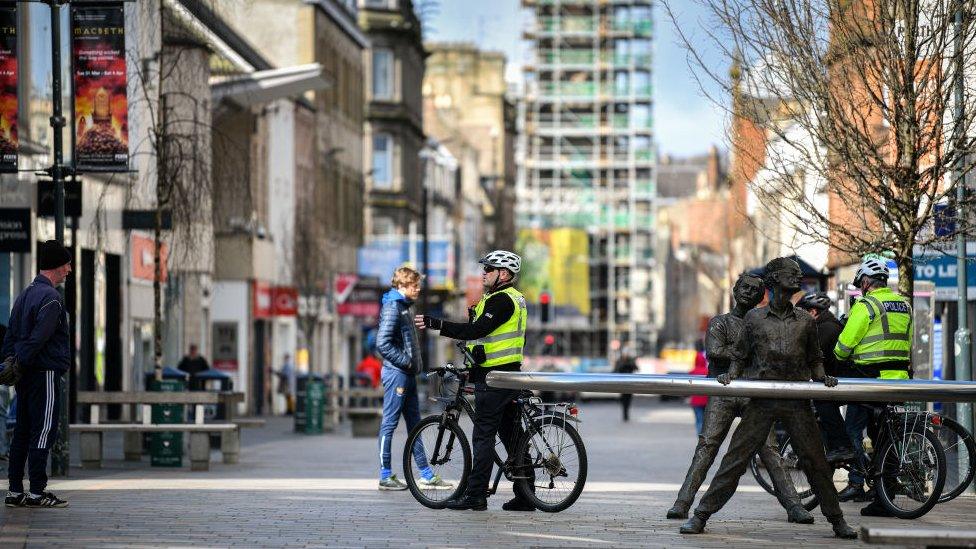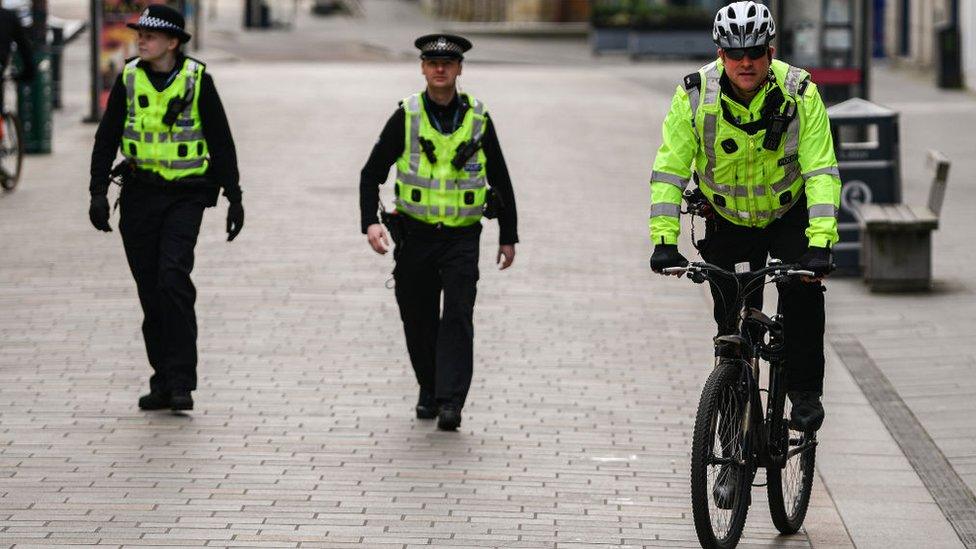Coronavirus: Police Scotland use emergency powers 62,000 times
- Published

In 94% of interactions, police were able to resolve issues without enforcement action
Emergency coronavirus powers have been used by police in Scotland more than 62,000 times.
Scotland's most senior police officer revealed the figures at the latest board meeting of the Scottish Police Authority.
He said that in the vast majority of cases - 94% - no action was taken.
However, the figures also showed people living in the most deprived areas were up to 12 times more likely to be given fines for flouting Covid restrictions.

Police patrol the streets during lockdown
John Scott QC, who was commissioned by Chief Constable , externalIain Livingstone to review the force's use of the powers, told BBC's Good Morning Scotland programme that enforcement action was only taken by officers on a small number of occasions.
He said: "It's slightly more than 4,000 cases that enforcement action was taken, but it's about 6% of the total police activity involved the use of fixed penalty notices."
He added: "When police spoke to people, they stopped doing whatever it was they were doing that might have been a breach of the restrictions or they went home. The vast majority of the time, the people being spoken to by the police, it was enough."
However, Mr Scott said that analysis of the data showed that the chances of being issued with a fixed penalty notice were significantly higher for those from poorer areas compared with those from more affluent areas.

People from poorer areas were 12 time more likely to be fined compared with more affluent areas
He said: "In that very small percentage of cases, the 6%, the likelihood of being issued with a fixed penalty notice was 12 times higher for those living in the 10% most deprived parts of Scotland.
"It tells us something about what support and resources are needed in these areas from a health perspective and also with adhering to coronavirus restrictions.
"No doubt in those cases of fixed penalty notices being issued, there are people who simply refused to take the opportunity to stop breaching the regulations, but others found themselves in circumstances where that was difficult and there were people whose home circumstances made it far more difficult for them to comply."


- Published30 June 2020

- Published24 April 2020
